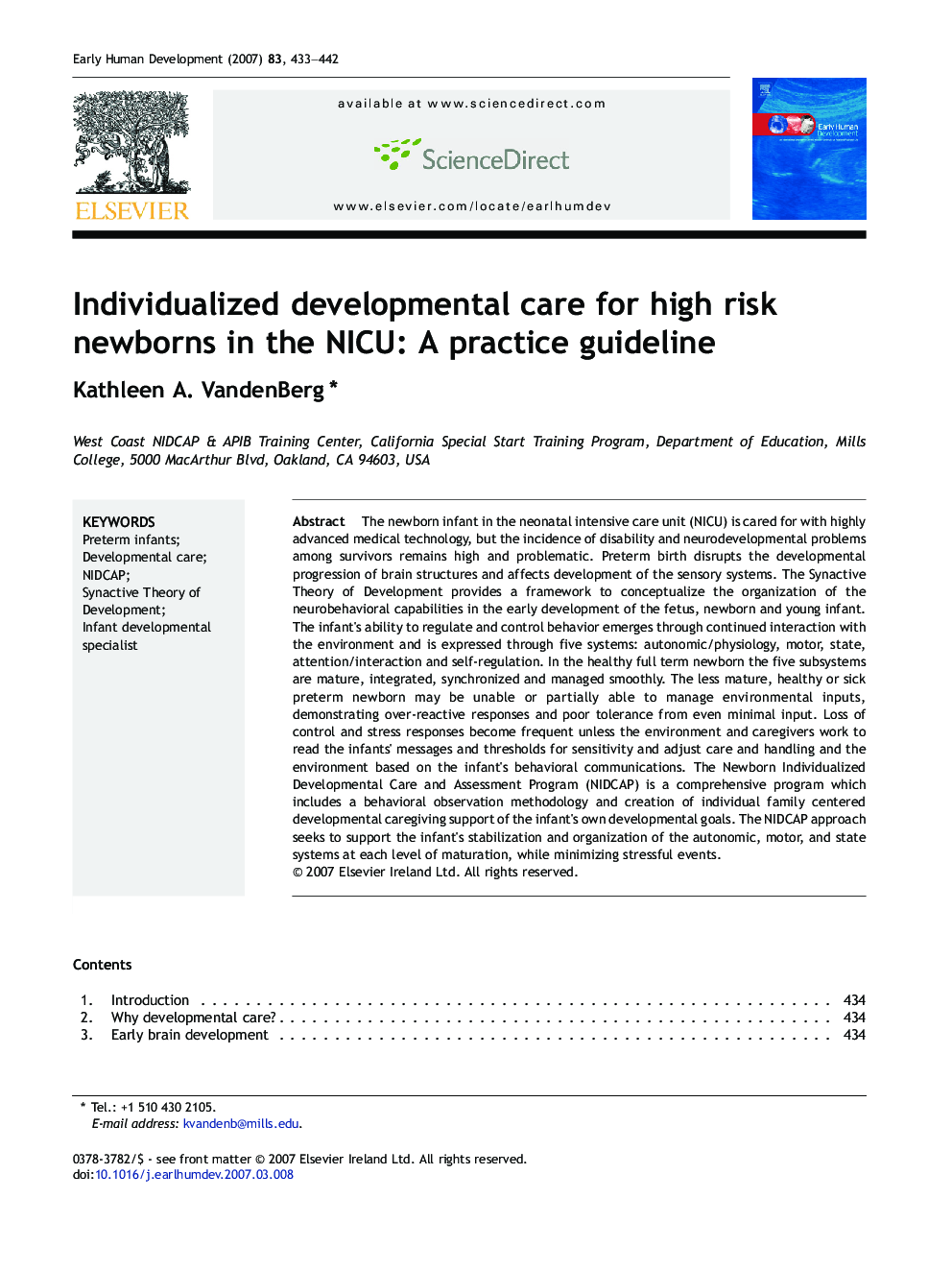| Article ID | Journal | Published Year | Pages | File Type |
|---|---|---|---|---|
| 3918316 | Early Human Development | 2007 | 10 Pages |
The newborn infant in the neonatal intensive care unit (NICU) is cared for with highly advanced medical technology, but the incidence of disability and neurodevelopmental problems among survivors remains high and problematic. Preterm birth disrupts the developmental progression of brain structures and affects development of the sensory systems. The Synactive Theory of Development provides a framework to conceptualize the organization of the neurobehavioral capabilities in the early development of the fetus, newborn and young infant. The infant's ability to regulate and control behavior emerges through continued interaction with the environment and is expressed through five systems: autonomic/physiology, motor, state, attention/interaction and self-regulation. In the healthy full term newborn the five subsystems are mature, integrated, synchronized and managed smoothly. The less mature, healthy or sick preterm newborn may be unable or partially able to manage environmental inputs, demonstrating over-reactive responses and poor tolerance from even minimal input. Loss of control and stress responses become frequent unless the environment and caregivers work to read the infants' messages and thresholds for sensitivity and adjust care and handling and the environment based on the infant's behavioral communications. The Newborn Individualized Developmental Care and Assessment Program (NIDCAP) is a comprehensive program which includes a behavioral observation methodology and creation of individual family centered developmental caregiving support of the infant's own developmental goals. The NIDCAP approach seeks to support the infant's stabilization and organization of the autonomic, motor, and state systems at each level of maturation, while minimizing stressful events.
